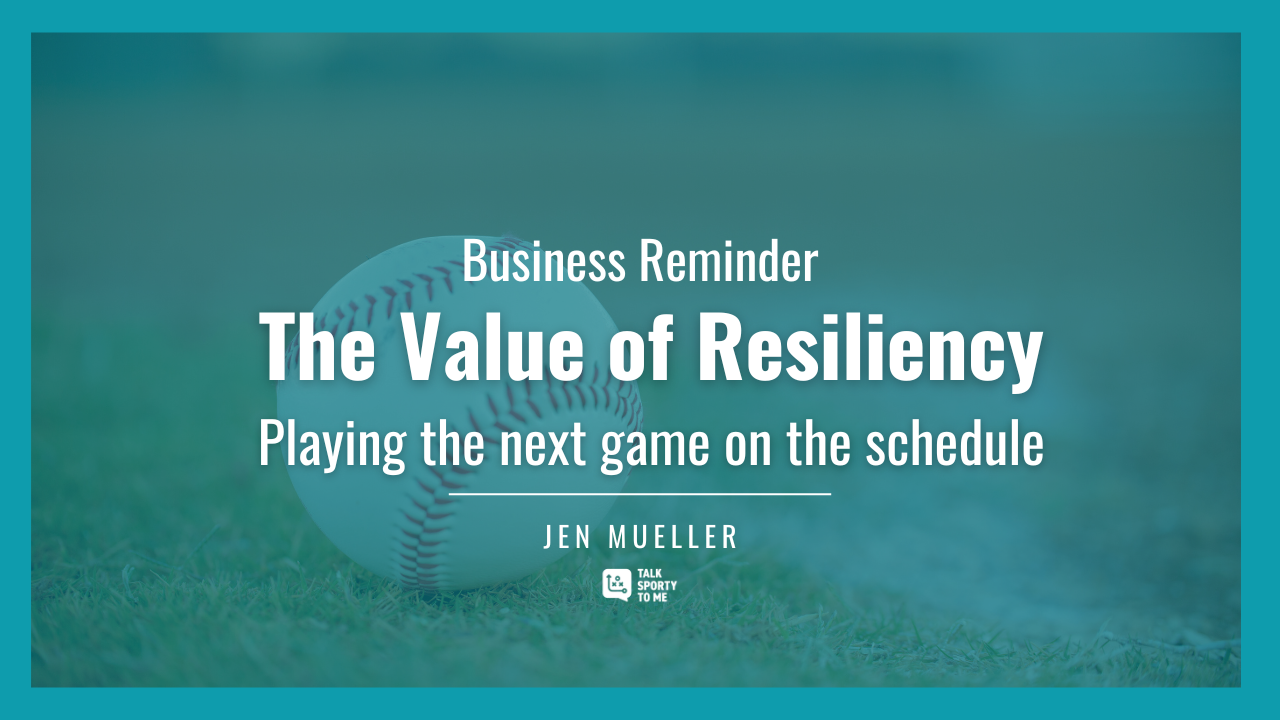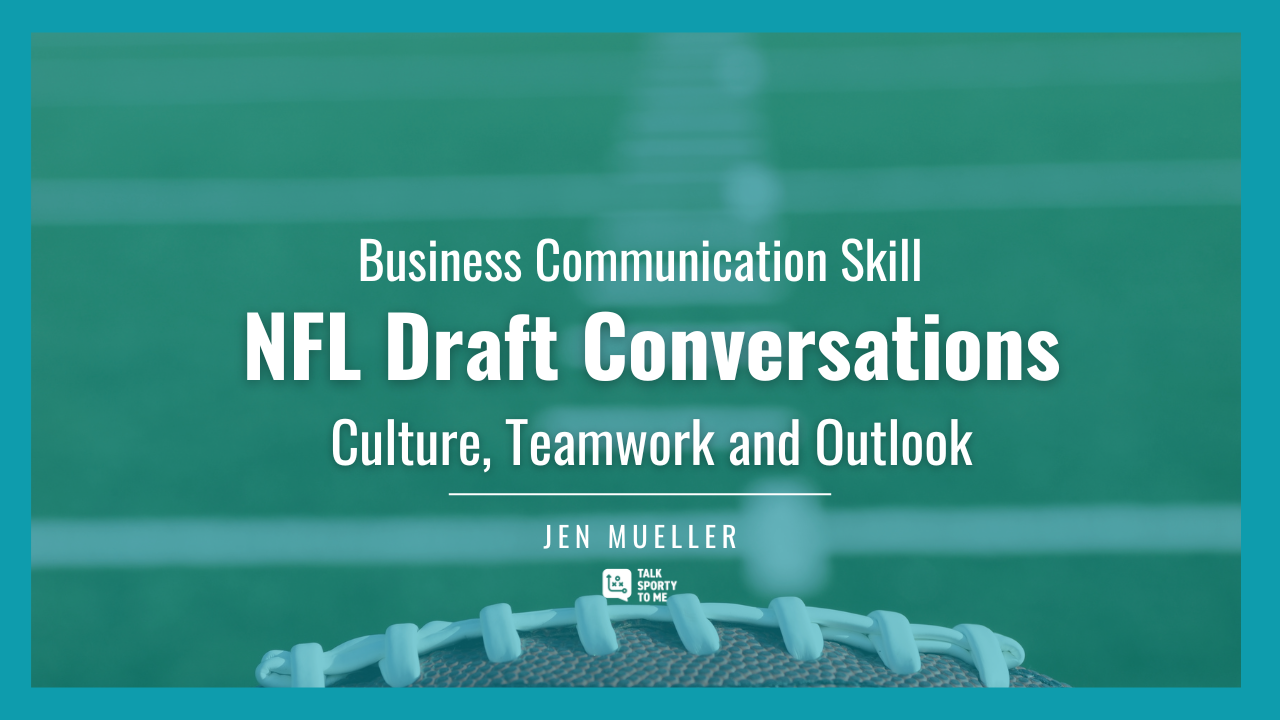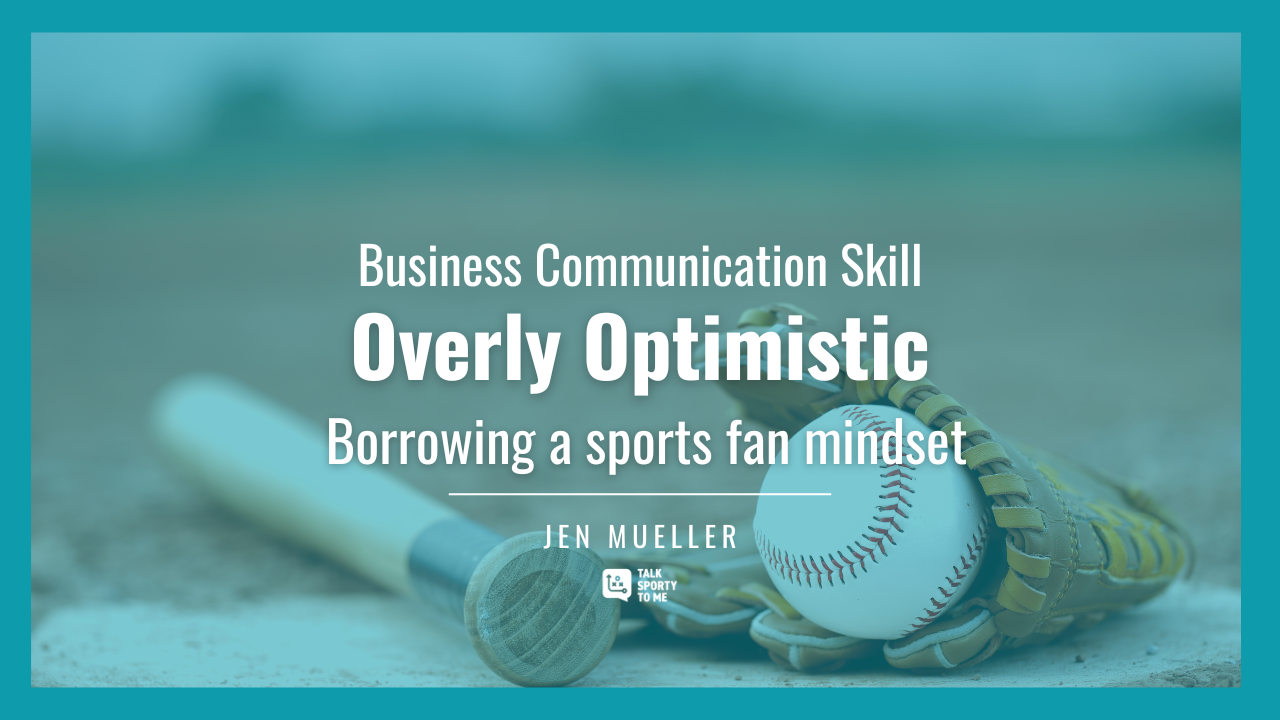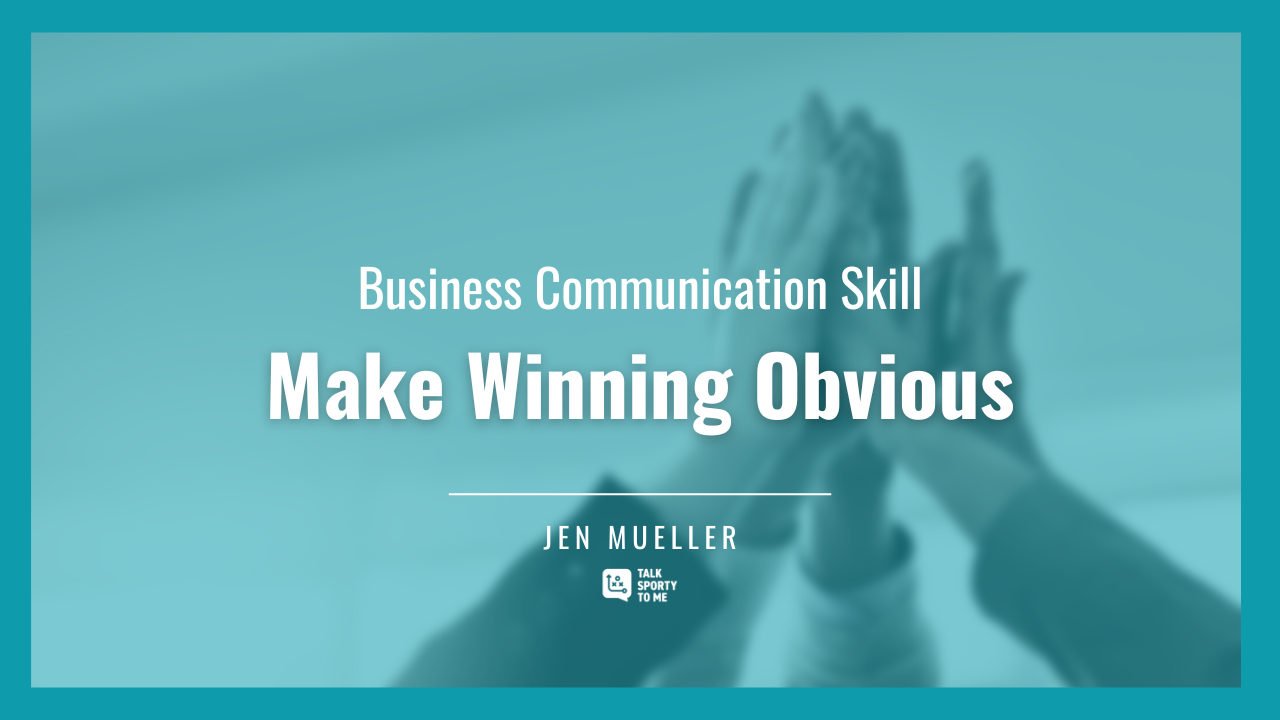I'M ONE TO TALK
Our Blog Posts will help you reach your full potential in becoming a confident conversationalist. New topics each week.
Supporting Superstars and thinking outside the box scores

Caitlin Clark is the most prolific scorer in college basketball history. The records she set at Iowa led to storylines sports fans around the country followed.
The increased popularity and viewership of women's basketball can be directly traced to Clark.
Her career and accomplishments have spark countless sports conversations, but here's what I keep thinking about - if it was my job to coach Caitlin Clark, what skills would I need to support a superstar talent?
Thinking outside the box scores leads us to a different type of conversation altogether, one that could benefit every leader because it's ultimately about the high performers on your team.
There's no question Clark is highly motivated on her own, but she can't win by herself. No one can. Her individual efforts get a lot of attention, but her team is the reason she won. So think about that in terms of the rising star in your organization and the high performers you manage. How do you create an environment that encou...
Practicing Change and thinking outside the box scores

Athletes train for change because it’s part of the job. They’re going to take the field, court or pitch and be forced to change direction.
It’s rare an athlete gets to run straight ahead unimpeded while doing their job, (the exception being track athletes, of course.)
They expect change, so they prepare for it.
In fact, if you were to watch practices you would discover that most of practice is about making adjustments and changing direction. They anticipate the scenarios they’ll encounter in a game or match and create drills that help them respond effectively.
Anyone who’s ever played sports would tell you that’s what practice is for.
So how are you practicing for change in your career?
This is another example of using sports to think outside the box scores and have a bigger conversation about preparing for change.
- How are you training yourself to be resilient and respond effectively when change happens?
- Do you spend time encouraging your team to practice and prepare for ch ...
Thinking Outside the Box Scores - Prepare to Fail

I know the old adage says if you fail to prepare you're preparing to fail, but guess what? You're going to fail anyway. Maybe not at that moment or during that stage of the project, but you're going to fail. We all do, even elite athletes.
And here's where Thinking Outside the Box Scores can be helpful in reframing your expectations for success.
As a sports broadcaster I've experienced wins and losses from the sidelines and locker rooms and sometimes even I forget that losing and failing is as much a part of the game as winning.

It sounds like a silly thing to say as a sports fan. In sports it's a given that a hitter will strike out, a quarterback won't complete every pass, a putt will be off the mark or a jumper will clang off the rim. No athlete expects to be perfect. They all prepare with that intent, but they also expect failure as part of the process.
Do you do the same thing? Or do you make an assumption that everything can and will be perfect?
Reframing your ...
Dealing with Unfair Outcomes (in sports and business)

Sports is entertainment. I get that. I'm a sports broadcaster and a fan. I see the fun side of sports every day, but I also see all the different ways sports helps us make better decisions in our own professional lives.
For example, dealing with outcomes that aren't fair. It sucks. It sucks when you run into bad luck. You know who experiences that more often than you do? Athletes.
When you watch sports you are watching professional development in real time. Athletes are professionals. They're building their skillset right in front of you and one of those skillsets is dealing with bad luck and outcomes that aren't fair.
Here are the two things I see athletes do most often in those situations:
1. Acknowledge it sucks. Be honest with your feelings. They definitely commiserate with each other in the locker room or clubhouse.
2. Evaluate their effort. It won't change the outcome, but when an athlete has done everything they can to prepare and execute in that moment they can bett...
A Win is a Win

You know what a sports fan, athlete or coach will never say? "That was a bad win."
Never. You will never ever hear them say that. Why? Because a win is a win. You don't put an asterisk next to it. You don't make excuses. You accept the win.
So why don't YOU do that at work? Instead of thinking of this phrase as a sports cliche, look at it as an opportunity for self-reflection and bigger conversations at work.
As I mentioned in the video there are certain ways we want to show up in business that reflect our brand and our values. I'm not suggesting you win at all costs. I do want you to be better about acknowledging and taking responsibility for your success. Here are three easy ways to do that.
1. Find attainable wins. If everything is a stretch goal, a monumental task or something that requires max effort it's really tough to stack wins. Here's an example of an attainable win, saying hello and hearing it in response. I do this all the time in locker rooms. Another easy w...
Resiliency and showing up

I don't know about you but when I think of resiliency or being resilient there's always a positive outcome in the end. As in, you stuck with it, even when it was difficult, and were rewarded.
But sometimes the reward is months or years in the making. Sometimes resiliency is showing up regardless of the outcome because you're taking the next logical step.
I've got a baseball example for you if you're willing to Thinking Outside the Box Scores. The Oakland A's are on pace to set an MLB record for most losses in a single season. They had the fewest wins in baseball at the end of April and yet, they still show up to the ballpark.
Teams/players don't forfeit games on the schedule because they're having a bad season or the odds are stacked against them. I talked to the A's manager who acknowledged it's been challenging, but also said the best thing (and the only thing) the team can do is show up and do the best they can.
Your team might need this reminder or you might need to have ...
Conversations about Culture, Teamwork and Team Outlook

How confident are you that your favorite NFL team will make the right hiring choice during the NFL Draft?
There are a lot of opinions online when it comes to mock drafts and predictions. Most of them focus on football. That makes sense because the NFL has turned the Draft into a three-day prime-time televised event, but at its core the draft and all the workouts, Pro Days and the Combine are all part of a hiring process that plays out in a very public way.
Here's what this means for you: there's an opportunity to have productive business conversations that you might not be able to easily broach in your normal day-to-day interactions.
Football fans are talking about the draft. Casual sports fans are aware of the draft. Use that to your advantage. When you use topic that is top-of-mind and direct the conversation towards specific business challenges, discussions and interactions that's Thinking Outside the Box Scores.
When I tell people to use sports in business conversation...
Coasting or finishing?

Golf is not a sport I watch with a lot of intensity, but I'll often watch the end of a tournament and the fanfare of the final few holes. Which got me thinking outside the box scores about how to approach a finish line, whether it's a golf tournament, sporting event or a project at work.
If you're not a sports fan, "running out the clock" is something a football team could do. A team that has the lead, the ball and very little time on the clock might do the bear minimum (almost like going through the motions) until the clock ticks down to zero. There's no reason to give extra effort. There's no reason to run an extra play. The game has already been decided and both teams are just waiting until they can leave the field.
It doesn't work that way in golf. The outcome might have been decided on Hole 16 or 17 but the round is still 18 holes. The winner, and everyone else for that matter, has to play out the round, and there is incentive and pressure to finish strong.
As I mentioned...
So you're saying there's a chance...

Opening Day and the start of every sports season brings unrivaled optimism that "This could be the year..."
The promise of Spring Training, the hype around new players, and a win-loss record that hasn't yet reflected the actual talent on a team, gives fans hope. Even if there is misguided optimism and unrealistic expectations (most) fans enjoy the feeling that anything is possible for the season.
As a fan you've probably rolled your eyes a few times at friends who insisted their team had a legit chance to win the championship as a long shot. You might have even argued the finer points of expected wins, off-season moves and games lost to injury. But you can't deny the optimism that exists at the start of every season, when each team starts with a clean slate and anything seems possible.
Let me ask you this... when was the last time you felt the same about your career or your business?
We laugh, roll our eyes and dismiss the enthusiasm of fans, but we should actually embrace t...
Make Winning Obvious

In sports it is painfully obvious you need to outscore an opponent to win.
If you say, "That was a big win!" everyone - even non-sports fans - knows that means one team scored more points than the other.
Outscoring an opponent isn't a key to the game it is the measure of success.
Why am I belaboring this point? Because we rarely make it this simple, straightforward or obvious in business. Things get convoluted quickly. There are multiple interests and just like with any game plan, multiple ways to get to the end result. But unlike sports, we rarely make winning as obvious as we should.
As mentioned in the video, winning looks different for different people. The bottom-line drives decisions, but that means something different for a CEO compared to a manager compared to a direct report.

That brings us back to Thinking Outside the Box Scores... it should be painfully obvious to everyone on your team what counts as a win. You should be able to communicate it as simply and cl...


